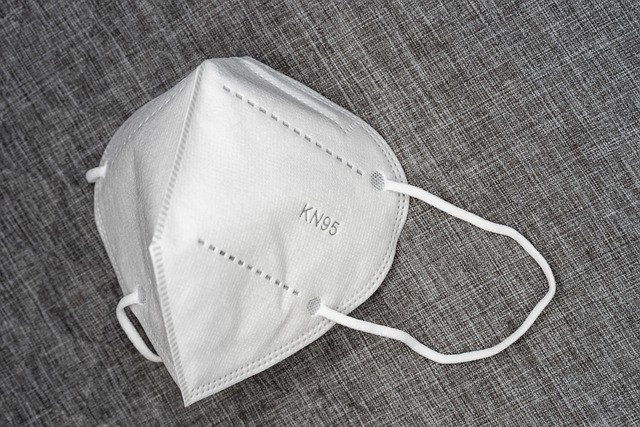
The world has changed drastically over the past few years, and with the ongoing COVID-19 pandemic, the importance of safety equipment has become even more apparent.
While it is essential to practice social distancing and good hygiene practices, wearing PPE when traveling can provide an additional layer of protection. In this article, we will discuss the top 5 best safety equipment for traveling, including face masks, gloves, eye protection, hand sanitizer, and disinfectant wipes.
- Face Masks
Face masks have become a common sight during the pandemic, and for good reason. They are an effective way to prevent the spread of airborne particles and protect yourself from potentially harmful pathogens. There are several types of face masks to choose from, including:
N95 Respirators
These are specialized masks that filter out at least 95% of airborne particles, including bacteria and viruses. They are often used by healthcare professionals, but they can also be worn by travelers.
Tactical Gas Masks
Tactical gas masks are designed to protect against toxic gasses and chemicals, making them an ideal option for those traveling to areas with high levels of air pollution or hazardous materials.
Cloth Masks
Cloth masks are an affordable and accessible option for travelers. These are the most common masks that you typically see people wearing. They come in various designs, colors, and sizes and can be washed and reused.
The benefits of wearing face masks while traveling include protecting yourself and others from potential airborne pathogens, reducing the spread of disease, and complying with local regulations.
- Gloves
Gloves are another essential item to consider when traveling. They provide a physical barrier between your hands and potentially harmful pathogens, preventing cross-contamination. There are three main types of gloves to choose from:
Latex Gloves
These are the most common type of gloves and are often used in medical settings. They are made from natural rubber and are a good option for those with latex allergies.
Nitrile Gloves
These gloves are made from synthetic rubber and are an excellent alternative to latex gloves. They are durable, puncture-resistant, and provide excellent protection against chemicals and pathogens.
Vinyl Gloves
These gloves are made from PVC plastic and are the most affordable option. They are often used in food service and janitorial industries.
Wearing gloves while traveling can help protect you from potentially harmful pathogens, prevent cross-contamination, and comply with local regulations. However, it’s essential to wear them correctly, dispose of them properly, and wash your hands regularly.
- Eye Protection
The eyes are another entry point for airborne pathogens, making eye protection an essential item to consider when traveling. Here are a few good eye protection options to choose from:
Safety Glasses
These glasses are designed to protect against flying debris and particles and are an excellent option for those traveling in construction or industrial areas.
Goggles
Goggles are a more comprehensive form of eye protection and are ideal for those traveling in areas with high levels of air pollution, dust, or chemicals.
Face Shields
Face shields provide full-face protection and are ideal for those traveling in high-risk environments or healthcare settings.
Wearing eye protection while traveling can help prevent airborne pathogens from entering your body, protect your eyes from injury, and comply with local regulations.
- Hand Sanitizer
Hand sanitizer has become an essential item during the pandemic, and it’s no different when traveling. It’s not always possible to wash your hands with soap and water when traveling, so hand sanitizer provides a convenient and effective alternative. You can decide if you want to use alcohol-based or non-alcohol based hand sanitizer.
Alcohol-Based
Alcohol-based hand sanitizers are the most common type and contain at least 60% alcohol. They are effective at killing most types of bacteria and viruses and are readily available in various sizes.
Non-Alcohol-Based
These sanitizers are an alternative for those who are sensitive to alcohol or have dry skin. They contain benzalkonium chloride, which is effective at killing bacteria and viruses but not as effective as alcohol-based sanitizers.
Using hand sanitizer while traveling can help prevent the spread of disease, especially when it’s not possible to wash your hands with soap and water. Even though hand sanitizer is typically very effective, this shouldn’t replace washing your hands when possible.
- Disinfectant Wipes
Disinfectant wipes are a convenient and effective way to clean surfaces when traveling. They can help eliminate bacteria and viruses from high-touch surfaces, such as tray tables, armrests, and doorknobs. There are three main types of disinfectant wipes to choose from:
Alcohol-Based
These wipes contain at least 70% alcohol and are effective at killing most types of bacteria and viruses. They are a good option for travelers who want to clean and disinfect surfaces quickly.
Bleach-Based
These wipes contain bleach and are effective at killing bacteria, viruses, and fungi. They are an ideal option for travelers who want to disinfect surfaces a little more thoroughly.
Hydrogen Peroxide-Based
These wipes contain hydrogen peroxide and are effective at killing bacteria, viruses, and fungi. They are a good option for travelers who want to disinfect surfaces without using harsh chemicals.
Using disinfectant wipes while traveling can help reduce the risk of contracting or spreading disease. They’re always a good option to keep on you, since you’ll likely come into contact with many surfaces with bacteria and germs throughout your travels.
Conclusion
Traveling requires extra precautions to ensure your safety and the safety of those around you. Personal safety equipment can provide an additional layer of protection and help reduce the risk of contracting or spreading disease.
The top 5 best personal protective equipment for traveling include face masks, gloves, eye protection, hand sanitizer, and disinfectant wipes. It’s important to use them correctly, dispose of them properly, and follow local regulations. Stay safe and healthy while traveling.





